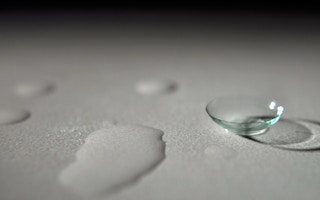Contact lenses and their packaging are for the first time recyclable in Australia, thanks to a new partnership announced on July 10 between American waste recycling company Terracycle—which has a mission to make everything recyclable—and eye health product manufacturer Bausch + Lomb.
To continue reading, subscribe to Eco‑Business.
There's something for everyone. We offer a range of subscription plans.
- Access our stories and receive our Insights Weekly newsletter with the free EB Member plan.
- Unlock unlimited access to our content and archive with EB Circle.
- Publish your content with EB Premium.
Regardless of the brand of contact lenses they wear, people in Australia can recycle the lens and their packaging—known as blister packs— by signing up for the programme online, downloading a prepaid shipping label, and mailing the lenses and blister packs to TerraCycle.
These items, which were too difficult and costly to recycle, are now recyclable due to Bausch + Lomb’s funding for recycling efforts, Terracycle told Eco-Business.
The metal layers of the blister packs will be recycled separately, while the lenses and plastic packaging will be melted down and re-moulded into recycled products.
For every kilogramme of waste that TerraCycle receives, the programme will also donate A$1 to Optometry Giving Sight, a global organisation that works to prevent blindness and impaired vision around the world.
Jean Baillard, general manager of TerraCycle Australia, said in a statement that “this is an incredibly admirable step from Bausch + Lomb to help consumers dispose of their waste more responsibly.”
There are about 680,000 contact lens wearers aged between 15 and 64 years old in Australia, according to a 2012 study.
“The company is showing itself to be a leader in its sector by sponsoring a national recycling programme and giving back to charity,” Baillard added.
Bausch + Lomb has had a similar recycling partnership with TerraCycle’s American operations, known as the One by One Recycling Program and launched in November 2016. This April, the company reported that the program had diverted more than 180,000 units of contact lenses and blister packs from landfill since its launch.








